In case you didn’t know, Mother Nature is fragile!
Our world thrives on a network of sensitive ecosystems. Each walks a tightrope to prevent itself from collapsing. Human impact on the environment has put this delicate balance at risk. Which is something every human alive should be fighting to prevent.
As a clear outdoor enthusiast, you have a solid part to play in maintaining the beautiful environments you so eagerly visit. Each time you step into the great outdoors, you leave an impact. In your mind, it may seem small, but we can assure you that, in the long run, it can mean a world of difference.
Luckily, reducing your environmental impact is far more achievable than it seems. It only takes a few mindful practices, known as the Leave No Trace Principles, to turn it all around!
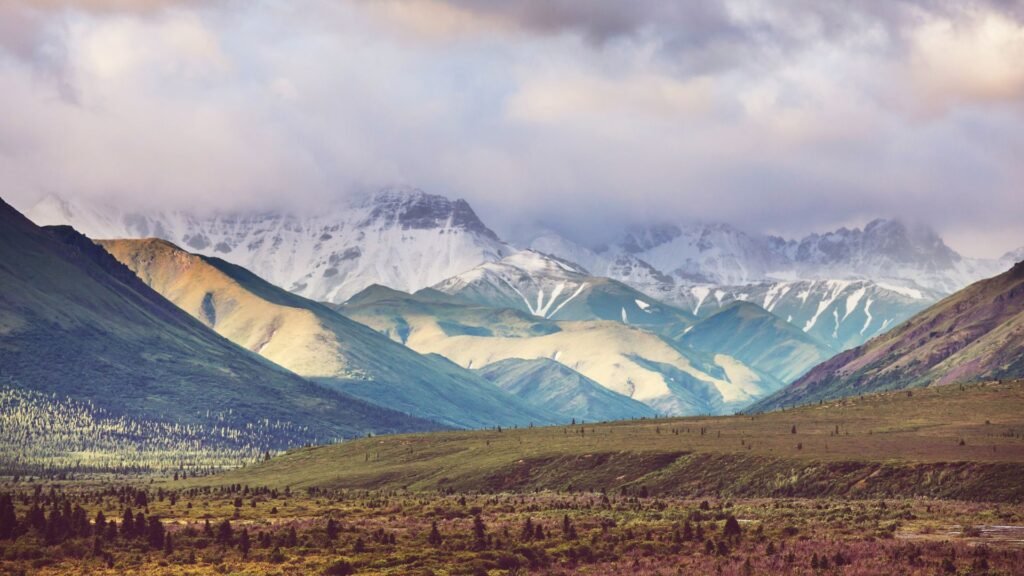
The 7 Principles of Leave No Trace
Leave No Trace is an inspiring movement aimed at helping people enjoy nature as intended! Instead of opting for pricey restoration projects, they aim to resolve detrimental impacts. By educating the public, Leave No Trace makes a massive difference in how we enjoy our natural parks!
How?
Well! They’ve devised a simple set of 7 unspoken yet universal rules for the nature-loving public to follow.
From humble beginnings, Leave No Trace is now a leading conservation center. Their reach has spread far further than the Americas. After all, they have set the gold standard for outdoor ethics in a big way!
What started as a group of rag-tag environmentalists has gathered a following in the millions! And after 25 years of hard work and education, they’ve certainly left their mark.
This once relatively unknown concept now plays a significant role in saving delicate ecosystems! Their ideologies can be applied everywhere, not only to protected wilderness areas. Leave No Trace Principles are easy and practical to use from your local park to your backyard!
Why Should You Care About Leave No Trace Principles?
The Leave No Trace Principles were designed with one ultimate goal in mind: to protect natural environments for future generations. As we’ve said, nature can be incredibly fragile! The incorrect conduct of humans has caused many habitats to suffer, if not die out completely.
It may seem dramatic! But our world lives in a delicate balance that can easily topple if we don’t take care of it. If wild animals and plants can live their life without impact, it’s easy to admit we should too!
Following the Leave No Trace Principles can help:
- Prevent unnecessary waste
- Save endangered wildlife
- Prevent water pollution
- Decrease human impact on the environment
And while it is true that you can’t single-handedly fix the world, this is an easy way to contribute to the solution!
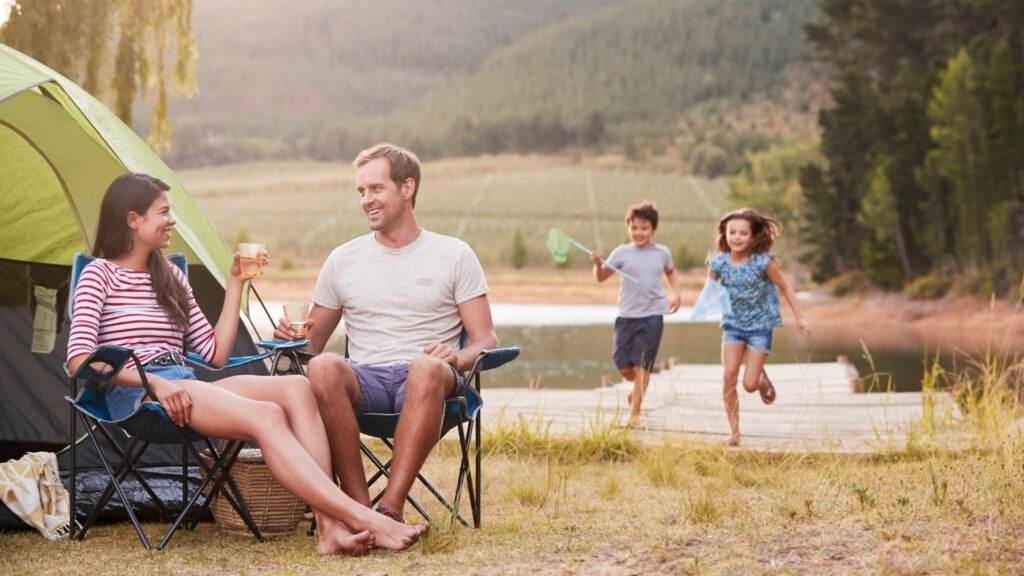
The 7 Principles of Leave No Trace
Let’s take a look at the seven principles of leave no trace:
Plan & Prepare
Planning and preparation is an essential part of camping. Keep in mind that you’re entering unknown and unpredictable territories! You don’t want to get caught without your underwear, literally and figuratively).
Poor planning isn’t only a headache to you when things ultimately go wrong, but it can lead to behaviors that damage the environment around you.
Luckily, there’s hardly a place on land that’s remained untouched by intrepid explorers. This means it’s easy to find plenty of information on your destination. Chat with locals, call your local park, or even use our trusty friend, Google!
To enjoy your trip to its fullest and to be as non-impactful on the land as possible, consider a few things:
- Are there fire bans?
- Is the campsite you’ve chosen easy to get to?
- What trails will you take to reach your destination?
- Do you need to plan for rough terrain and weather?
By preparing for your trip and planning ahead, you can prevent many problems. You can ensure you’re well taken care of and keep your natural environment happy!
Choose Your Hiking and Camping Spots Wisely
Anyone who’s spent a decent amount of time outdoors knows that high-traffic areas often have recognizable trails through dense foliage. While these occur naturally in some cases, humans can also be responsible for creating them.
The more activity in a natural area, the more the foliage and soil get destroyed. As resilient as nature can be, sometimes overuse of land can cause a permanent scar! That is why this principle aims to prevent this unnecessary damage.
Disturbances in otherwise untouched areas can cause significant problems! You could endanger entire ecosystems if you and your group decide to go off-trail. Wild animals can become too familiar with humans, making them a danger to you and themselves. And some plant life can take years to recover if trampled.
Most National Parks mitigate this by offering designated camping and hiking areas. But in cases where this does not exist, you need a significant amount of sound judgment.
Try to set up your campsites in durable areas that you are sure have low wildlife traffic. And do your best to keep to designated hiking trails!
By ensuring you respect the land, you can help reduce human impact substantially!
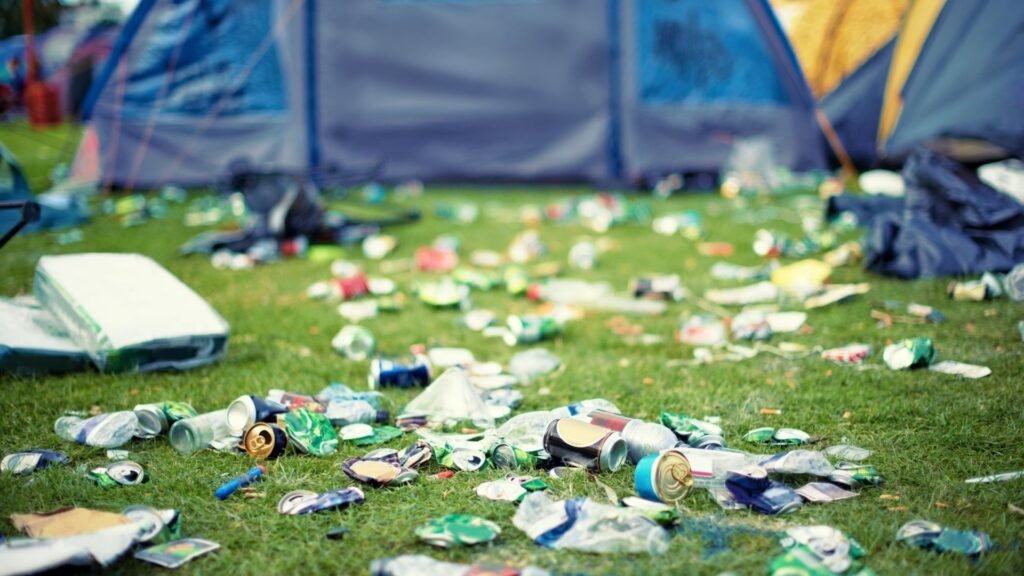
Dispose of Waste Properly
It goes without saying that human rubbish is not a part of the natural landscape and should not be left there!
This principle is probably the easiest to follow: simply dispose of your waste correctly! Whether it be rubbish or dog poop, they need to be handled properly.
For artificial waste, like empty bottles and food containers, carry it until it can be thrown away in a rubbish bin. If they’re recyclable or biodegradable items only, that’s even better!
As for any bodily waste, bury it in a cathole around 8 inches deep! Unfortunately, this is as good as it gets regarding bathroom etiquette in the great outdoors. Not only do you dispose of your waste correctly by doing this, but you save some poor, unsuspecting hiker behind you from the displeasure of getting a new shoe color.
Make sure also to avoid contaminating natural waterways. Your rubbish and soaps do not belong in a natural stream!
Leave What You Find Behind
As beautiful as that rock may look, it’s not yours to take. Contrary to popular belief, even small, seemingly insignificant things can affect an ecosystem. If you find something you like out in the great outdoors, take a moment to admire it, but please don’t remove it!
Similarly, try not to disrupt natural spaces to the best of your ability. Don’t destroy areas by digging trenches or cutting down trees. And above all else, do not bring anything into the area that does not belong there! One of the biggest threats to an ecosystem is invasive species of both animal and plant kinds.
Natural resources are being depleted at an astonishing rate. Don’t add to the problem.
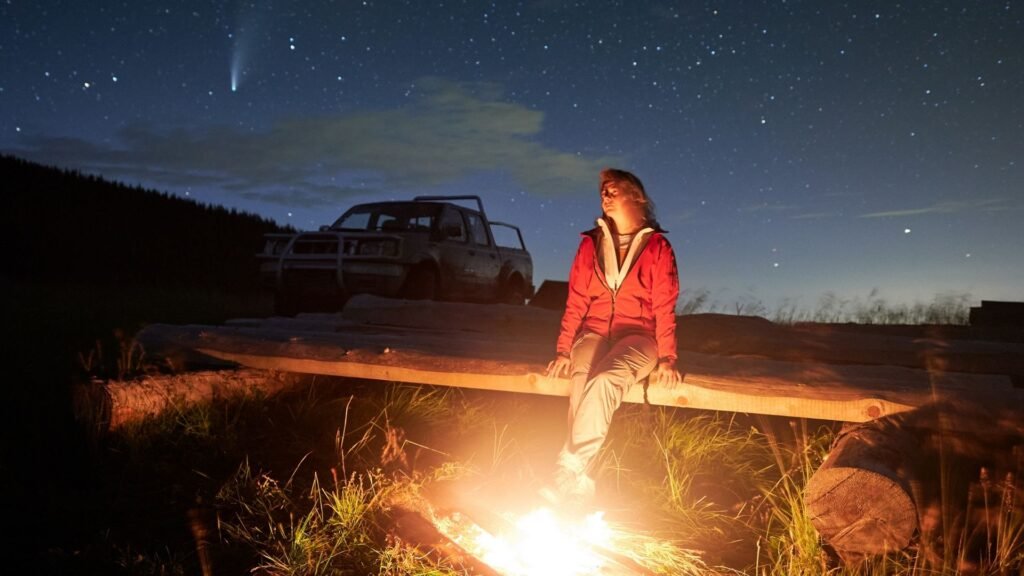
Minimize Campfire Impacts
While building campfires is an essential skill and a rite of passage for campers, there are right and wrong ways of doing it.
Firstly, only build campfires in areas that allow it! There are bans in certain places for a reason, and starting a fire where you shouldn’t be devastating.
Even within fire-friendly campsites, it’s best to learn how to make campfires in fire pans, rings, or mounds. Once you’re done, the fire must be fully extinguished. All the materials should be completely burnt down, and you should scatter the remnants around the area.
As much as fires can be dangerous, they do leave behind nutrient-rich traces that can benefit the environment if disposed of properly. They also have a role in nature, which is why wildfires happen! Lightning strikes can be responsible for setting a forest alight, but this natural phenomenon serves a purpose: rebirth!
We should push this process smoothly, which is why Campfire Safety is so important!
Be Considerate of Other Visitors
The world’s natural ecosystems are available for any eager explorer, not just you. This means you’ll often interact with others on your hiking and camping adventures.
Like you would in your own home, be considerate of those around you.
There are plenty of small, unspoken rules of camping and hiking etiquette. Things like:
- Keeping noise levels down
- Cleaning up after yourself
- Respecting the right of way
- Rest off the trail so you don’t block the path of others
These help make sure everyone is able to enjoy a peaceful and unforgettable experience in nature.
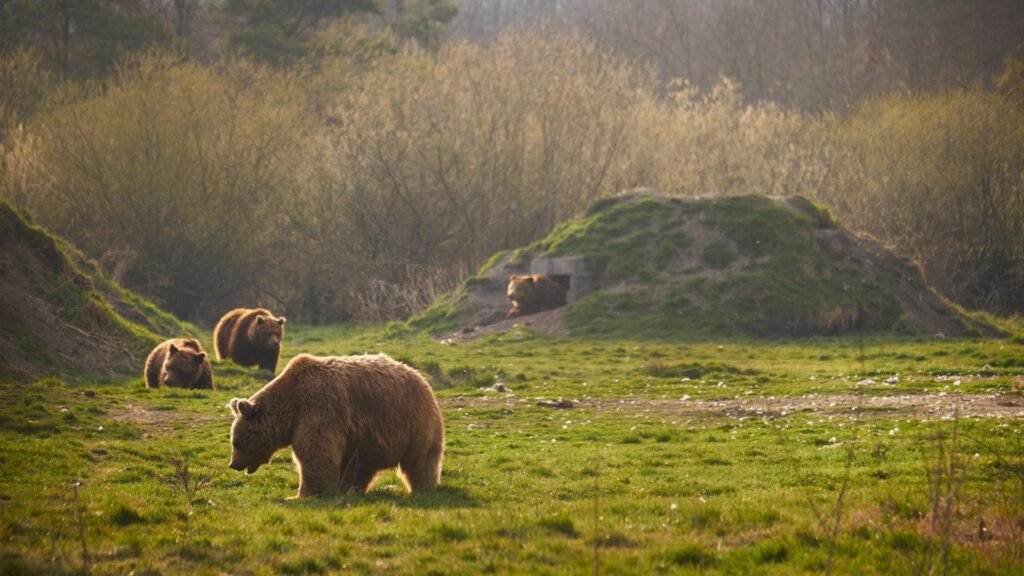
Respect Wildlife
Animals were there before you and will be there long after you. Animals are naturally wary of humans, and keeping them that way is best. Encounters with wildlife, while not uncommon, are best handled by slowly removing yourself from the confrontation. Whether you’re face-to-face with a bear or have stumbled across some deer in a meadow, do not interact with them!
As more and more animals are being forced from their environments by deforestation, we see more negative interactions. Remember, these animals will not hesitate to behave aggressively out of fear or hunger.
The more interaction wild animals have with humans, the less likely they are to avoid them, and this could lead to dangerous situations for all involved.
So do not feed them, do not let your pets chase them, and only observe them from a distance.
F.A.Q.
Here are some frequently asked questions about leave no trace camping principles:
How Do I Learn More About Leave No Trace?
You can visit their website here and learn about how your choices can impact the environment differently. Alongside helpful tips on following their 7 Principles, you can also find information on volunteering!
Conclusion
The World’s natural wonders belong to everybody to be explored. But we need to know how to respect our environments to keep them thriving for decades to come. While you may be able to donate to organizations dedicated to saving our Earth, the real changes start with you! Leave No Trace has made it possible for every nature enthusiast to become a local hero. All you need to do is be mindful of their guidelines, and you’re guaranteed to make a big impact.
Happy camping, Everyone!

